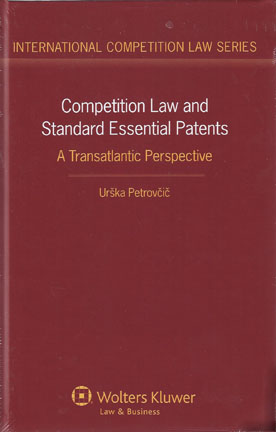
Despite the substantial benefits of standards in today’s economy, the recent advent of standard essential patents (SEPs) – which protect proprietary technologies essential for industry standards – has tended to create a setting for anticompetitive practices that, at least potentially, harms competition and consumer welfare. An opportunistic SEP owner can intentionally conceal the existence of its patents during the standardization process, or later hold up manufacturers and impose on them exploitative licensing conditions. This book, through an intensive focus on case law in the United States and the European Union, clarifies the scope of competition law in addressing SEP owners’ opportunistic conduct, and offers the first comprehensive analysis of the antitrust liability an SEP owner might face in each jurisdiction. The presentation thoroughly explains all of the following relevant topics and issues:
An extensive bibliography includes a broad range of sources from statutes and cases to speeches and blogs. Practicing lawyers and companies that need to identify the limits that competition law imposes on SEP owners’ conduct will benefit immeasurably from the wealth of both information and insight provided here. The book will also be of great value for competition policymakers and academics in the field; the latter will also appreciate the substantial comparative law value of the book’s parallel study of US and EU competition law.